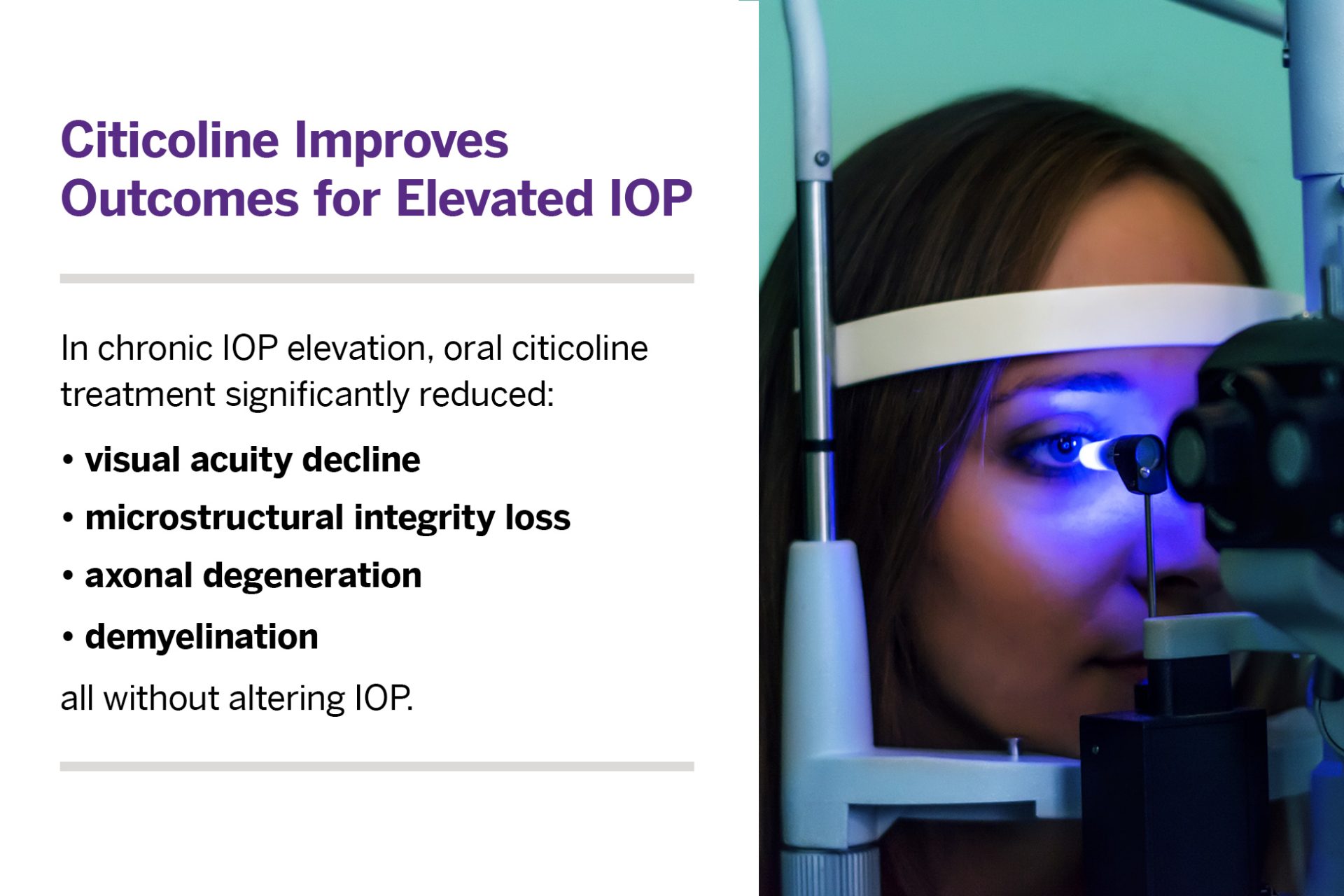Visual brain signals were restored to near-normal levels in a murine model.
Intraocular pressure (IOP) is the only modifiable risk factor for glaucoma. Yet, neurodegeneration may continue despite adequate IOP control. Citicoline, a chemical known to protect nerve cells, also slows glaucoma, found a study published in Neurotherapeutics.
Kevin Chan, PhD, director of the Neuroimaging & Visual Science Laboratory, was senior author of the study.
The researchers used a murine model of glaucoma and multi-parametric MRI, behavioral assessments, and histology to evaluate citicoline’s effect on different magnitudes and durations of IOP elevation. Additionally, they evaluated the effects of oral citicoline treatment as a neurotherapeutic in experimental glaucoma.
“Our study suggests that citicoline protects against glaucoma through a mechanism different from that of standard IOP treatments.”
Kevin Chan, PHD
In rats with mildly elevated eye pressure, tissues along the visual pathway decayed for up to five weeks after the injury occurred. In a chronic IOP elevation model, three weeks of oral citicoline treatment substantially reduced visual brain integrity loss and visual acuity decline without altering IOP. “In addition, choline metabolites and functional brain signals restored to near-normal levels,” Dr. Chan says. These effects were sustained for another three weeks after treatment was discontinued. “Our study suggests that citicoline protects against glaucoma through a mechanism different from that of standard IOP treatments,” Dr. Chan says.






